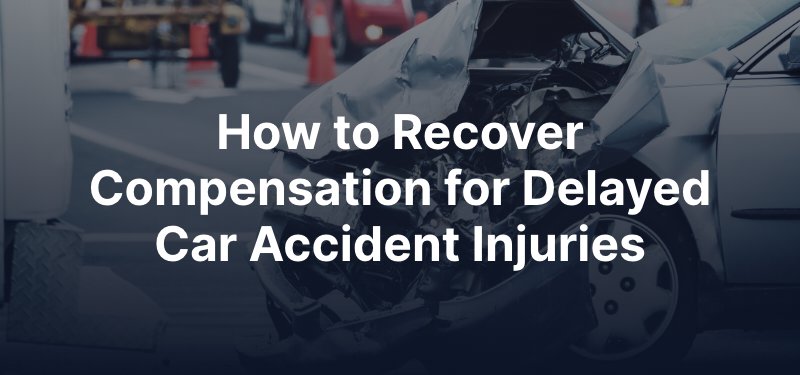 Car accidents can be disorienting and traumatic events. In the chaos that follows a collision, adrenaline and shock can mask pain and symptoms, leading some injuries to go unnoticed for days or even weeks. These delayed injuries can have major implications for both your well-being and any subsequent legal claims, so it is important to monitor your health closely and seek medical care as soon as possible.
Car accidents can be disorienting and traumatic events. In the chaos that follows a collision, adrenaline and shock can mask pain and symptoms, leading some injuries to go unnoticed for days or even weeks. These delayed injuries can have major implications for both your well-being and any subsequent legal claims, so it is important to monitor your health closely and seek medical care as soon as possible.
What Is a Delayed Car Accident Injury?
A delayed car accident injury refers to those injuries that do not show symptoms immediately after a crash. Sometimes, injury symptoms can take time to manifest, and you may feel fine initially after the collision. However, in the days and weeks that follow, you may develop painful symptoms that require medical attention.
Here are some common examples of delayed injuries in a car accident:
- Whiplash: Often, the symptoms of whiplash such as neck pain, stiffness, and headaches may not be noticeable immediately after the accident.
- Concussions: Common symptoms such as irritability, sleep disturbances, sensitivity to light and noise, and emotional instability may not become apparent until long after the collision.
- Soft Tissue Injuries: Injuries to muscles, tendons, and ligaments might initially go unnoticed until the initial shock of the accident subsides.
- Psychological Injuries: Emotional and psychological issues such as PTSD or anxiety may emerge long after the physical wounds have healed.
How Delayed Injuries Can Affect Your Car Accident Claim
Delayed injuries can complicate your car accident claim, making it more challenging to obtain the compensation you deserve. Insurance companies often view delayed symptoms with skepticism, believing that they may not be directly related to the accident. This stance can make it difficult to prove that your injuries are indeed a result of the collision, especially if symptoms develop days or weeks later.
The potential gap in medical documentation can also complicate matters. If an injury is not immediately apparent and thus not recorded in initial medical reports, insurance providers may argue that it could have been caused by unrelated events occurring after the accident. This can also undermine your claim.
Protecting Your Right to Compensation with a Delayed Injury
Although delayed car accident injuries can complicate your case, there are actions that you can take to protect your right to recovery. To safeguard your rights and ensure you receive the compensation you deserve, take these crucial steps after an accident:
- Seek Immediate Medical Treatment: Visit a healthcare professional right after an accident, even if you feel fine. Mention any minor aches or discomfort, as they could be early signs of more serious injuries.
- Be Careful About What You Say: Avoid discussing fault at the accident scene and refrain from making detailed statements to insurance adjusters before speaking to an attorney.
- Gather Evidence: Take photographs of the accident scene, your vehicle, and any visible injuries. Keep a detailed record of your symptoms and medical visits.
- Continue to Seek Care When New Symptoms Arise: Follow up with medical care if you develop new symptoms, and keep detailed records of all related medical treatments.
Finally, it is important to seek guidance from a car accident attorney in Kansas City who can advocate for your right to compensation. An attorney can counter claims from insurance providers, gather critical pieces of evidence, and fight for your right to maximum compensation in your case. After the accident, schedule a free legal consultation and begin your journey to justice.